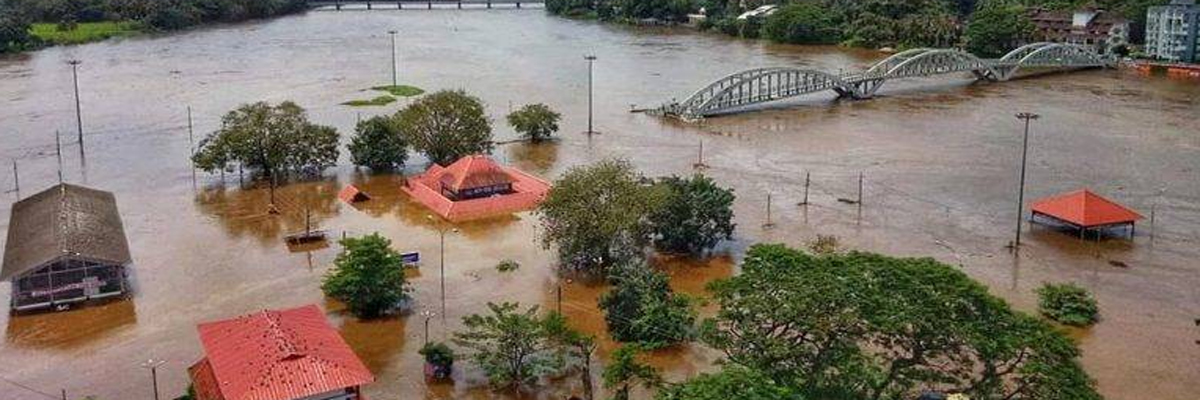A year when climate change hit closer to home

Warnings of the disastrous effects of climate change not just dominated scientific discourse but also hit uncomfortably close to home this year with consequences such as extreme weather events, floods and wild fires seen across the world
Warnings of the disastrous effects of climate change not just dominated scientific discourse but also hit uncomfortably close to home this year with consequences such as extreme weather events, floods and wild fires seen across the world.
Teen climate activist Greta Thunberg caught the world's attention this month at the 24th Conference of the Parties to the United Nations Framework Convention on Climate Change (COP24) in Katowice, Poland, with a fiery speech shaming global leaders for being "too immature" to confront the truth of climate change.
"You only talk about moving forward with the same bad ideas that got us into this mess, even when the only sensible thing to do is pull the emergency brake," she said in her speech. The 15-year-old's passionate plea to save the planet for the sake of future generations was an apt climax to a year peppered with research reports warning that inaction is turning the only known planet with life into a "hothouse".
A report, released ahead of COP24, showed global emissions have reached historic levels with no signs of peaking. The report estimated that mitigation efforts need to be tripled to meet the Paris Agreement, which aims to limit global temperature rise this century to well below two degrees Celsius. Researchers assessed that only 57 countries are on track to do so by 2030.
Despite global scientific consensus on the topic, numerous advocacy groups, conspiracy theorists and oil company lobbyists continued to deny climate change, significantly hampering efforts to reduce global emissions.
Meanwhile, climate change has already begun to take a toll. Extreme weather due to climate change this year left a trail of devastation across the globe, including in India, according to the World Meteorological Organisation (WMO), which said 2018 is set to be the fourth warmest on record.
The long-term warming trend continued in 2018, with the past four years being the warmest in 138 years of climate record keeping. Other telltale signs of climate change, including sea level rise, ocean heat and acidification and sea-ice and glacier melt, continue, according to a WMO statement. In August, Kerala suffered its worst flooding since the 1920s, killing over 250 people and displacing more than 1.4 million people. Major wildfires affected Athens in Greece in July, causing at least 91 deaths.
British Columbia in Canada broke its record for the most area burned in a fire season for the second successive year. California suffered devastating wildfires, with November's Camp Fire being the deadliest fire in over a century for the US, killing at least 86 people.
The continuing global warming trend caused the Arctic region to experience the second lowest overall sea-ice coverage on record this year, according to the US National Oceanic and Atmospheric Administration (NOAA). Melting of polar ice contributes to rising sea level, a phenomenon that can affect lives in many ways.
While the threat of rising sea levels to coastal cities and communities throughout the world is well known, a Virginia Tech study showed that even a minor rise in sea levels due to climate change can increase the risk of potentially devastating tsunamis around the world. Other studies also spelt out the dire future in store in large swathes of the globe if preventive action is not taken.
A study from University of Melbourne in Australia found poorest regions of the world will bear the worst brunt of climate change, even if global average surface temperatures reach the 1.5 or 2 degree Celsius limits set by the Paris agreement. Deaths caused by severe heat waves will increase dramatically by 2080, particularly in countries located near the equator such as India if we fail to counter climate change, according to a global study by Monash University in Australia.
Research also showed that climate change significantly affects global economy, owing to increased health and operational costs with rising temperatures. The Indian economy would lose up to USD 210 billion every year due to its carbon dioxide emissions, according to a global study which found the country is likely to suffer highest economic damage from climate change -- second only to the US.
By Mohana Basu














